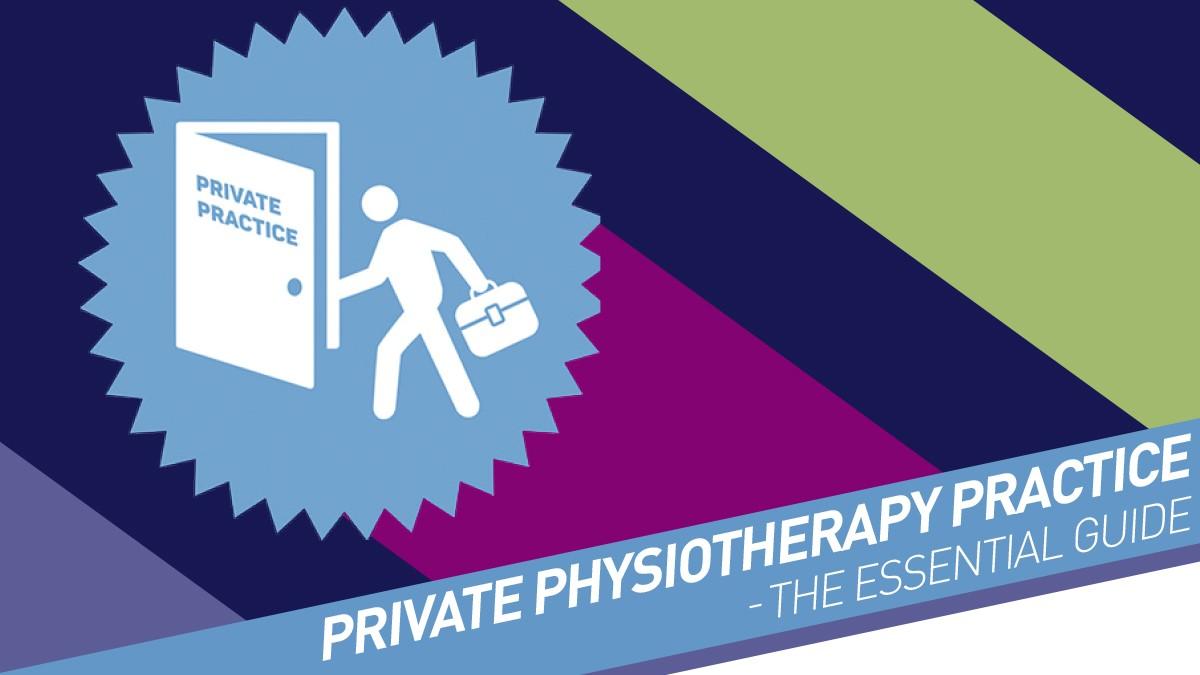A new eResource aims to offer valuable advice to physiotherapists with an entrepreneurial flair

You’ve been working in physiotherapy for a while. You have a decent amount of experience under your belt and are now considering a move into private physiotherapy. But where do you start? There’s so much to consider. Perhaps you want to offer a class or just take the occasional referral. Or are you already in private practice but need to ensure you have all the bases covered to run a successful enterprise? If so, what steps do you need to take?
There are close to 55,000 physiotherapists in the UK registered with the Health and Care Professions Council (HCPC). Although opportunities for work in private practice continue to diversify, how do you stand out from the crowd? How do you make sure you follow the regulations? Set up the right kind of practice? Find enough patients? Get that contract and turn over a decent profit?
Physio First, the CSP professional network representing physiotherapists in private practice, has been working with the society to create a new e-resource, Private Physiotherapy Practice – The Essential Guide.
The 36-page digital resource covers:
- how to move into private physiotherapy
- regulatory and professional requirements
- setting up a business
- marketing and attracting new patients
- business planning
- insurance
- contracts
- set-up costs, fees and raising finance
- accounting and tax
- premises
- employing staff
- and more …
Pam Simpson, chair of Physio First, says: ‘We are delighted to have worked with the CSP to create this resource. It’s packed with everything you need to know about private physiotherapy practice, whether you are just starting out or you have an existing practice and wish to scale up your business.’
She adds: ‘We felt it was important to offer something that was useful not just for our members. By working closely with the CSP, we’ve created a resource that will help those physiotherapists considering moving into private practice as well as existing practitioners, whether they are Physio First members or not. We hope it will help everyone in private practice to thrive.’
Support for success
The main aim of the new resource is to offer support in navigating the world of private practice. It works through the various types of self-employment – everything from setting up your own business to taking on occasional referrals, through to what’s needed when becoming a self-employed associate in someone else’s practice, to starting your own practice. The purpose is to help you make a success of working as a private physiotherapist in whatever capacity.
Running a successful private practice demands a commitment to deliver a service of the highest possible professional standards. The resource will help individuals and groups of physiotherapists in planning and preparing to do just that.
Jenny Nissler, CSP professional adviser, says there have been changes to aspects of private practice since the last CSP paper was written – for example, in relation to data and insurance cover. ‘Physiotherapists are taking up various forms of private practice alongside their main jobs, adding to the cohort of those in full-time private practice. Physiotherapy support workers are also starting to work in private practice.’
At the 2018 annual representatives conference, a motion was passed calling for the CSP to update its paper on private practice. Ms Nissler adds: ‘Following that decision, the CSP committed to responding in full in line with one of its strategic objectives: “Fulfil the potential of physiotherapy to empower patients and communities.”
‘So when we contacted Physio First and heard that they were already developing an online resource, it was a good opportunity to collaborate with them as the recognised experts in this area of practice.’
Scope of practice
Questions members send in to the CSP’s professional advice service make it clear that physios want to be clear on what they can and cannot do.
‘For instance,’ says Ms Nissler, ‘questions about their scope of practice, both in terms of the profession itself as it evolves in response to healthcare needs and individuals’ own scope, regularly crop up.
‘Then there’s the link between scope and what physiotherapists are insured to do. The HCPC requires that physiotherapists work within scope and have liability insurance to cover them for what they do, whether as a sole trader or a different type of business where the insurance needs may be different. This is an area about which you need to be fully aware if you’re working in a self-employed capacity and relying on your CSP insurance.’
She adds: ‘Working through the resource will give physios the essentials. It will take some of your time but having done it, you will feel confident that you’re ready to go ahead with the interesting bit, the work that you trained to do – helping patients, clients or service users to optimise their quality of life.’
Physio first member benefits
Chair Pam Simpson says Physio First is for championing evidence-based, cost-effective private physiotherapy in the changing healthcare market.
With approximately 3,000 members across the UK, it is the trade association for chartered physiotherapists in private practice and a dynamic professional network of the CSP.
Member benefits include:
- access to up-to-the-minute marketplace information
- a private peer-to-peer support forum
- benchmarking reports
- recording your treatment data and outcomes with Data for Impact
- a chance to participate in Physio First’s Quality Assured Practitioner and new Quality Assured Clinic schemes
Find out more at Physio First here
- Access the free e-resource here at the Private physiotherapy practice – the essential guide
Number of subscribers: 3




































